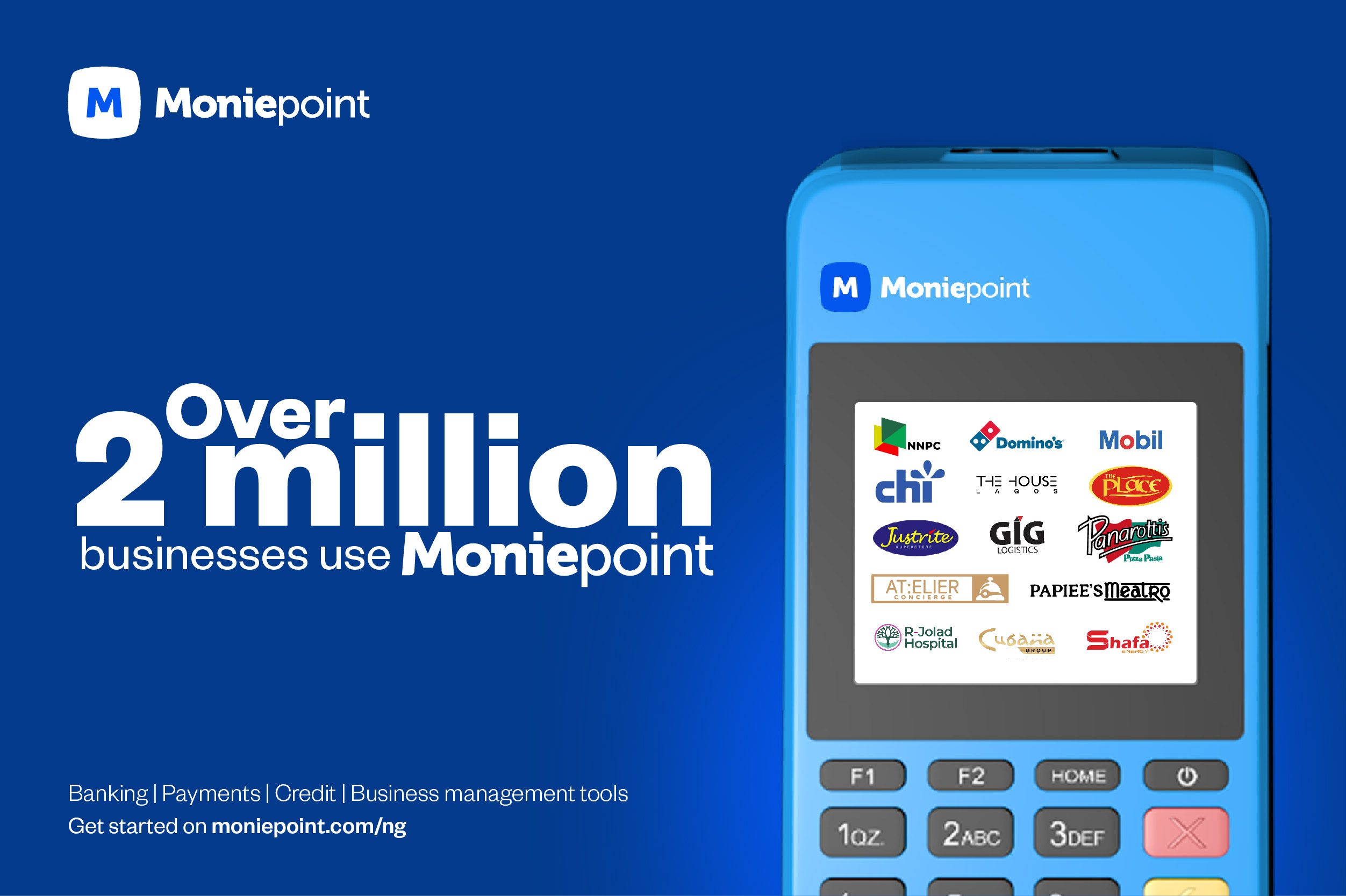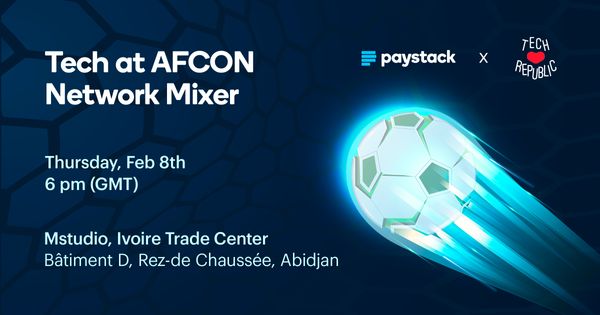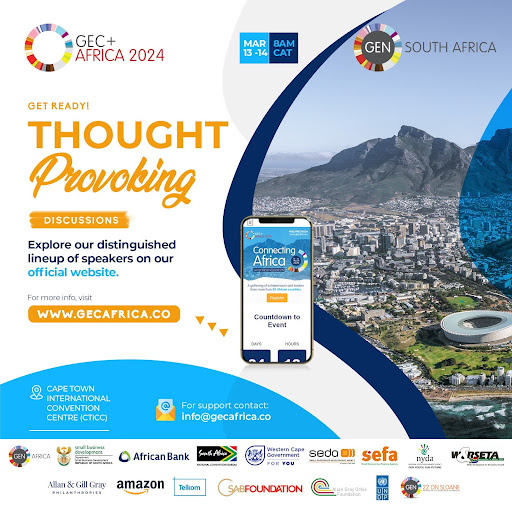

Good morning ☀️
If you’ve read our State of Tech in Africa report, can you take two minutes to share your thoughts with us?
In today’s edition
- Mastercard acquires minority stake in MoMo
- Glo settles $1.4 million bill with MTN
- Kenya introduces draft Bill to regulate virtual assets service providers
- 2G and 3G networks in South Africa get a two-year reprieve
- South Africa’s Competition Commission appeals case dismissal against 23 banks
- The World Wide Web3
- Opportunities
Mastercard acquires minority stake in MoMo
Mastercard, the global payment giant, is investing R3.8 billion ($200 million) in the MTN’s mobile money service. With the investment, Mastercard is acquiring a 3.8% minority stake in the telecom’s fintech arm.
The move follows MTN’s recent partnership with Sweden-based telecommunications company, Ericsson to allow MTN’s Mobile Money (MoMo) service on the Ericsson wallet.
MTN group had earlier announced the intention to sell a 30% stake in the fintech firm. When Mastercard makes the cash injection, MTN MoMo will be worth R99 billion ($5.2 billion).
Why it matters: On the upside, the deal grants Mastercard access to MTN’s massive network across 17 African countries, expanding its reach and solidifying its digital payments dominance. Mastercard’s investment will fuel MTN Mobile Money’s growth, potentially leading to wider service offerings, and expansion into new markets. The collaboration could also birth innovative financial products, like virtual cards linked to mobile wallets, boosting online payments and international remittances.
However, concerns on whether the strategic partnership truly promotes financial inclusion, or helps consolidate power within existing players and stifle competition among smaller players.
Zoom out: The latest development comes as MTN is taking big bets on its mobile money platform. The telecom reported that the fintech had seen increased traction in the market, recording a 21.7% year-on-year increase in revenue. MTN attributes this growth to the expansion of its wallet, payment and e-commerce, and remittance services.
Access payments with Moniepoint

Moniepoint has made it simple for your business to access payments while providing access to credit and other business tools. Open an account today here.
Glo settles $1.4 million interconnection fee debt
The only constant in life is change, and Glo’s debt to MTN.
Nigeria’s leading telecom, MTN, has agreed to accept Globacom’s ₦2 billion ($1.4 million) interest payment on its interconnect fees—an amount charged by telecom for calls terminating on their network. Glo’s original debt to MTN in 2012 was about 1.6 billion ($1.1 million) but due to Glo’s tardy repayments, the debt accumulated interest over the years. Yesterday, the telecom reached an agreement to pay the ₦2 billion ($1.4 million) accrued interest on the debts.
ICYMI: The Nigerian Communication Commission (NCC), on January 8, served a disconnection notice to Glo, which permitted MTN to disconnect Glo subscribers over years of unpaid interconnect fees. However, Glo was granted a 21-day extension to reach an agreement with MTN one day before the planned disconnection.
A bromance built on borrowed funds: Glo’s debts to MTN date back 15 years, with the first reports of Glo falling behind on interconnect fees emerging in 2012. In 2016, MTN reportedly threatened to disconnect Glo over the unpaid fees. In 2019, the telecom disconnected Glo from its network for five days, forcing Glo to pay around ₦2.6 billion ($1.8 million) in owed interconnect fees out of a total ₦4.4 billion it owed at the time. Airtel also threatened to disconnect Glo during the same period.
Glo’s interconnect debt grew over the years because it often made smaller debt repayments when compared with the amounts it owed. However, the NCC appears to be tightening its leash on Glo and other telecom operators in the country. Per local media, the regulator is ensuring that Glo and other telecom operators comply with the market rules and pay their debts.
Secure payment gateway for your business

Fincra’s payment gateway enables you to easily collect Naira payments as a business; you can collect payments in minutes through bank transfers, cards, virtual accounts and mobile money. Create a free account and start collecting NGN payments with Fincra.
Kenya introduces draft Bill to regulate virtual assets service providers
The Blockchain Association of Kenya (BAK) has introduced its first-ever Virtual Assets Service Provider (VASP) draft Bill.
The draft bill proposes a comprehensive framework encompassing licensing, consumer protection, anti-money laundering, and a regulatory sandbox.
The bill’s introduction follows a series of policy-focused community engagements initiated by BAK. In June 2023, Kenya signed into law the Finance Act 2023. The Act, which had a 3% gross tax on digital assets, was actively challenged by the BAK. They submitted their concerns, petitioned the High Court, and held industry workshops. Ultimately, lawmakers recognised the need for dedicated regulations and tasked BAK with crafting a billto govern the cryptocurrency industry in Kenya.
But it’s not a solo mission: Until February 7, stakeholders worldwide can review the draft and contribute their voices. This approach ensures the final Bill reflects the needs of everyone involved. After that, BAK will revise and incorporate feedback into the next iteration of the Bill and deliver it to the National Assembly’s Departmental Committee on Finance and National Planning by February 14, the same committee that tasked the association to develop the draft bill.
If passed, this bill will attract international investments and talent, positioning Kenya as a leader in Africa’s crypto space. BAK also aims to attract $1 billion in Foreign Direct Investment (FDI) by 2027, supporting Kenya’s economic recovery.
Zoom out: Other African countries like Nigeria are also taking steps to regulate their cryptocurrency industry. After initially banning crypto in 2021, Nigeria’s Central Bank has lifted its ban in December 2023, and now aims to regulate “virtual asset providers.” Banks can now serve crypto providers, but only those licensed by the Securities and Exchange Commission (SEC).
2G and 3G networks in South Africa get a two-year reprieve
South Africa has hit the breaks on its planned shutdown of 2G and 3G networks.
Originally scheduled for separate dates in June 2024 and March 2025, the shutdown has now been postponed to December 31, 2027. In September 2022, the South African government announced a staged shutdown of legacy networks. Per the government, the shutdown would pave the way for 4G and 5G.
So, what changed? Public feedback, particularly from industry players who believe “3G still provides a decent experience for basic uses.” Additionally, the government wants to ensure a smooth transition by conducting a risk assessment before pulling the plug.
Now, the shutdown process is scheduled to begin on June 1, 2025, allowing mobile operators flexibility in choosing which network to deactivate first. Some operators plan to start with 3G in June 2024, but the total shutdown of both networks is slated for December 31, 2027.
Zoom out: While many South Africans relied on 3G networks in 2021, with 60% of mobile subscriptions reportedly using the technology, the landscape is rapidly evolving. The upcoming shutdown reflects a necessary step towards progress, freeing up valuable spectrum for advanced technologies like 5G which already has a 7.5% coverage in South Africa as of 2021.
You’re invited to Paystack’s AFCON Mixer! ⚽️

Join us in Abidjan for a casual evening of good food, great conversation, and more! RSVP here →
South Africa’s Competition Commission appeals case dismissal against 23 banks
The Competition Commission of South Africa is appealing to the Constitutional Court against 13 banks after the Competition Appeal Court (CAC) dismissed its case against 28 banks for manipulating the rand-dollar rate.
The story behind the legal tussle: In 2017, South Africa’s Competition Commission accused 28 banks of conspiring via Bloomberg chatrooms to manipulate the rand-dollar rate.
By 2019, the initial case was dismissed, leading to a revised filing in 2020 that excluded South African banks from the chatroom involvement. Further charges against the banks in 2021 were dismissed, followed by their successful appeal against the case in November 2023. Last week, only 5 foreign banks—BNP Paribas, JP Morgan Chase Bank, HSBC Bank PCC, Credit Suisse Securities and Investec—remained implicated as the courts dismissed the eight-year case against 23 banks, ruling that the Commission didn’t prove a “single overall conspiracy.”
Investec, however, chose not to join previous efforts to stop the case and remains part of the proceedings, saying it’s ready to defend itself at trial.
Bank charges dropped, but the Commission fights on: Undeterred, the Commission is now appealing this decision to the Constitutional Court, targeting 13 respondent banks, including local giants like Standard Bank and international players like Bank of America Merrill Lynch. Arguing that the CAC misinterpreted their evidence and applied incorrect legal standards. They believe they have enough evidence to proceed against the remaining banks.
The Commission also wants the Constitutional Court to clarify whether they have jurisdiction over foreign firms impacting the South African economy.
Attend GEC+ Africa

Join entrepreneurs and leaders from 43+ African countries in Cape Town at this year’s GEC+Africa conference. Register here to reserve your place.
The World Wide Web3
Source:

|
Coin Name |
Current Value |
Day |
Month |
|---|---|---|---|
| $42,803 |
+ 1.62% |
– 1.76% |
|
| $2,377 |
+ 3.75% |
+ 6.12% |
|
|
$0.14 |
– 7.15% |
+ 143.87% |
|
| $96.98 |
+ 2.33% |
+ 4.75% |
* Data as of 23:20 PM WAT, Febraury 6, 2024.

Effortlessly make global settlements in over 30 currencies across 120+ countries spanning four continents, delivering cost-effective and reliable solutions to your clients, suppliers, and customers. Get started today.
- For African founders, applications are open for the Accelerate Africa accelerator for startups on the continent. Founders will receive coaching from two of Africa’s top operating founders, access to a network of 75+ investors on demo day, and Clinics and office hours for your legal, finance, and tech needs. Apply by February 16.
- Are you a young girl with a passion for technology and innovation? Apply now for the National Girls in ICT Competition 2024. The competition is an initiative that creates a platform for girls in secondary school to showcase their skills and creativity in various ICT-related domains. Apply by February 18.
- Applications are now open for the 10th cohort of the Orange Corners Nigeria Incubation Programme(40,000 Euros in funding). The programme empowers aspiring entrepreneurs to transform their dreams into thriving realities. Apply by February 18.
- Report for the World once again invites independent news organisations across the globe to join its growing network of host newsroom partners. Newsrooms will be asked to make the case for the beat they want to cover and how they will provide support and mentorship to their prospective corps members. In turn, Report for the World will fund half the salary of the reporters for up to three years. Apply by February 20.
What else is happening in tech?
Written by: Faith Omoniyi & Mariam Muhammad
Edited by: Timi Odueso
Want more of TechCabal? Sign up for our insightful newsletters on the business and economy of tech in Africa.
- The Next Wave: futuristic analysis of the business of tech in Africa.
- Entering Tech: tech career insights and opportunities in your inbox every Wednesday at 3 PM WAT.
- In a Giffy: business decisions powered by data-driven insights and analysis you can trust.
- TC Scoops: breaking news from TechCabal
P:S If you’re often missing TC Daily in your inbox, check your Promotions folder and move any edition of TC Daily from “Promotions” to your “Main” or “Primary” folder and TC Daily will always come to you.





















